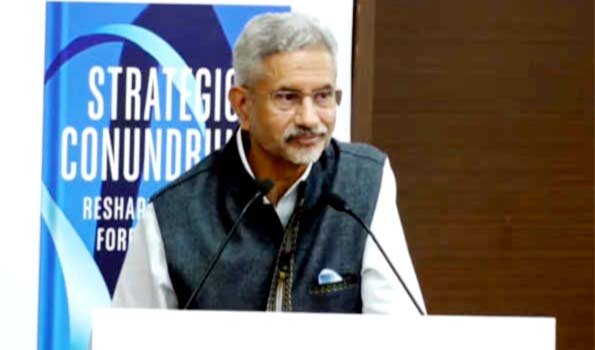New Delhi, Aug 30 (UNI) India’s relationship with Bangladesh has seen ups and downs since its independence, and it is natural that New Delhi will deal with the government of the day, External Affairs Minister S Jaishankar said here today.
Speaking at a book launch, the EAM said India will “have to look for mutuality of interests”.
On Bangladesh, which has been in the throes of a political upheaval following the resignation of Sheikh Hasina as prime minister on August 5 and her fleeing to India, and the formation of an interim government in Dhaka under the shadow of the Bangladesh army, the EAM said:
“Since independence our relationship has gone up and down; and it is natural that we will deal with the government of the day; but we also have to recognise that there are political changes, and the political changes can be disruptive. And clearly here, we have to look for mutuality of interests.”
Addressing a function on the release of the book ‘Strategic Conundrum: Reshaping India’s Foreign Policy’, by Rajiv Sikri, former Indian ambassador, the EAM dwelt on the word “conundrum” with regard to foreign policy.
“For every country in the world, neighbours are always a conundrum.
“Because neighbouring relationships, for every country in the world, are the most difficult; and they can never be “solved”; they are continuing relationships which will always throw up problems.
“So when people come up and say ‘That’s happened in Bangladesh, This has happened in Maldives’, I think they need to look around the world, and tell me which country in the world doesn’t have problems, and challenges and complexities vis a vis its neighbours. I think it’s in the very nature of being a neighbour that this will happen.
“And in fact, the very closeness is actually the complication,” he added,
He said that the major powers “will always be a conundrum because of the breadth of their interest”.
“They will always have an agenda which will overlap with us, but will to different degrees also diverge with us.
“In the case of China, there is a double conundrum, they are a neighbour and a major power,” he said, smiling.
He said India being the biggest country of the region will benefit by greater, deeper regionalisation.
“The question is with whom and on what terms do we regionalise?
“Everywhere there is history at play, and there is politics that often contests history, and this is a perennial challenge for India’s ties with all of its neighbours,” he added.











